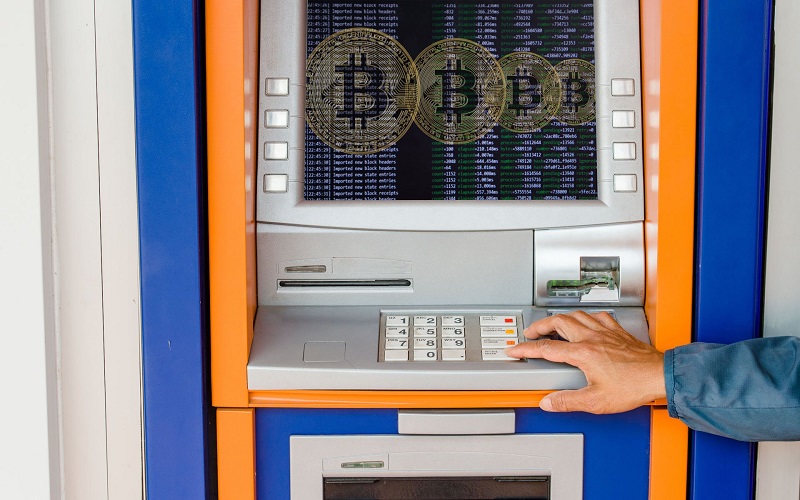
Bitcoin, since its inception in the fintech space, has been very highly regarded in most African countries. While challenges and difficulties are still emerging in the continent, some prominent names in the cryptocurrency sphere have regarded Africa as an excellent place for bitcoin. But what is with Africa that digital currencies keep on thriving in the continent? Before we answer that big question, let us first take a look at how Africa is doing economically.
Africa’s current economic situation
According to the African Economic Outlook 2020: Developing Africa’s Workforce for the Future, published by the African Development Bank Group, “Africa’s economic growth has stabilized at 3.4 percent in 2019 and is expected to pick up to 3.9 percent in 2020, and 4.1 percent in 2021, but to remain below historical highs.”
This goes to show that African countries are showing signs of economic development through the gradual increase in economic growth. An article published by Quartz Africa also stated that Africa had some of the world’s rapidly growing economies. Among the considered top-performing countries are “South Sudan (8.2%), Rwanda (8.1%) Côte d’Ivoire (7.3%), Ethiopia (7.2%), Senegal (6.8%), Benin (6.7%) and Uganda (6.2%) along with Kenya, Mozambique, Niger, and Burkina Faso all expecting 6% growth.”
These numbers imply the leveling or stabilization of Africa’s economic growth. However, what will these success stories have to do with the continent being one of the best places for bitcoin? One interesting fact is that most Africans have continued interest and enthusiasm in bitcoin. In fact, data from Google Trends reveals that Nigeria, South Africa, and Ghana, respectively, are the top three regions with the highest search results for the term “Bitcoin.”
Aside from being a fascinating and intriguing digital currency, what other factors make BTC so accessible in Africa? Here is another interesting fact—Africa was deemed as the “unbanked continent.”
The unbanked continent
In 2017, an article published by Elixirr mentioned that traditional banks were struggling to reach the unbanked in various parts of the continent. It further explained that almost 66 percent of Sub-Saharan Africans did not have bank accounts in 2014. This was affected by the “small size of national markets, a lack of financial literacy, low-income levels, political instability, and weak judicial systems.”
With the complexity and cost of creating and having bank accounts, as well as the limited number of physical banks in Africa, the majority of the population opted to use alternative financial systems like local credit unions, and the most commonly used financial means until today—mobile or digital banking.
Cash vs. mobile payment
Despite the difficulty in having access to physical banks and the services they offer, most Africans still preferred to use cash for payments instead of digital alternatives. Transacting in person is still their most favored method as they fear that if their device gets stolen, their funds or money will be gone too.
As per a report from BBC in 2019, Africa has a high mobile penetration percentage. However, about only six percent of the population uses mobile phones to make financial transactions. Almost 60 percent of Nigerians do not have bank accounts or access to banks, which makes the digital services also inaccessible to them. On the flip side, 73 percent of the population in Kenya have access to digital payments as they have a mobile payment account.
This is when the battle between using cash or mobile payment is evident. The use of digital solutions is not unusual for them. In fact, according to the research on blockchain and cryptocurrency in Africa done by Baker McKenzie in 2019, “It is often said that the pervasiveness of mobile telecommunication usage in Africa enabled the continent to leapfrog many first-world countries; and mobile phone usage grew from less than three percent to 80 percent in under a decade.”
In recent years, Africa is utilizing blockchain technology in tackling and addressing challenges in the region, and cryptocurrencies, specifically bitcoin, is also among the most adopted modes of payment because of its remarkable features.
Implications of blockchain technology and bitcoin usage in Africa
Among the many reasons why bitcoin and blockchain continue to rise in Africa, particularly in South Africa, is because these technologies have been aiding them in gradually resolving some challenges in the region. Here are some of the positive effects of utilizing bitcoin and blockchain in Africa:
Local and international remittance
Bitcoin has been known to provide unbanked individuals with access to various available services that are present with banks. One of the most important uses of BTC is for money transfer or remittances—may it be within the region or outside the African borders. Bitcoin has been beneficial for facilitating borderless, low-cost, fast, and reliable transactions.
High-level literacy in finance and technology
African countries are very much familiar with the applications and benefits of digital solutions, which explains why these regions are among the fastest implementers of technologies like blockchain, cryptocurrencies, and other digital systems.
Mobile or online payment systems
People will no longer have to travel to various places to make bank payments, purchase items and goods, and pay for services. A big chunk of the population of Africa uses a mobile payment system for making monetary transactions. The Bitcoin network is using digital bitcoin wallets and Internet connection to complete transactions. With that being said, Africans who are using mobile payments can use bitcoin with the same process—the main difference would be: there’s no need to provide personal information to complete transactions.
Efficient access to markets
Through various cryptocurrency platforms, the African population now has easy access to markets. With the power of blockchain technology, payments and transactions are now accessible with bitcoin. Africans, aside from using bitcoin for remittances and fees, can also now do bitcoin trading through available bitcoin exchanges. Among the many exchanges available in the region is Paxful, one of the leading peer-to-peer marketplaces for bitcoin trading. Apart from providing a trustworthy platform for buying and selling bitcoins, Paxful enjoys a great relationship with African users through various beneficial affiliate programs and the #BuiltWithBitcoin philanthropic initiative.
The volatility of government-issued money
One of the most useful features of bitcoin is that it is deemed as a reasonable means of wealth preservation. Currencies in African countries have experienced unstable changes in value, which also challenged the central banks, as well as the investors in the country. Let us state South Africa’s Rand currency, for example. As per Bloomberg, Rand was the most volatile currency among the major government-issued money. With this fact, bitcoin serves as an excellent alternative to gold as means of preserving wealth.
Will Africa define the future of BTC?
There is a growing number of countries and jurisdictions that are gradually looking into the potentials of blockchain technology and cryptocurrencies, particularly bitcoin. And in recent years, among the notable adopters of these ingenious technologies come from the world’s second-largest and second most-populous continent—Africa.
This article was sponsored by Paxful Inc, a leading peer-to-peer Bitcoin (BTC) marketplace that aims to provide financial inclusion around the globe.
Follow us on Telegram, Twitter, Facebook, or subscribe to our weekly newsletter to ensure you don’t miss out on any future updates.





One Comment